The earliest known human settlements in what is now the Democratic Republic of the Congo have been dated back to the Middle Stone Age, approximately 90,000 years ago. The first real states, such as the Kongo, the Lunda, the Luba and Kuba, appeared south of the equatorial forest on the savannah from the 14th century onwards.
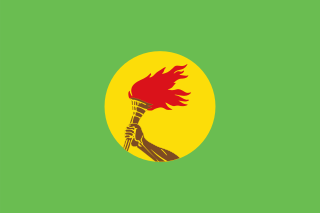
Zaire, officially the Republic of Zaire, was the name of the Democratic Republic of the Congo from 1971 to 1997. Located in Central Africa, it was, by area, the third-largest country in Africa after Sudan and Algeria, and the 11th-largest country in the world from 1965 to 1997. With a population of over 23 million, Zaire was the most populous Francophone country in Africa. Zaire played a central role during the Cold War.
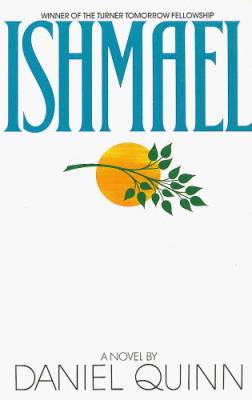
Ishmael is a 1992 philosophical novel by Daniel Quinn. The novel examines the hidden cultural biases driving modern civilization and explores themes of ethics, sustainability, and global catastrophe. Largely framed as a Socratic conversation between two characters, Ishmael aims to expose that several widely accepted assumptions of modern society, such as human supremacy, are actually cultural myths that produce catastrophic consequences for humankind and the environment. The novel was awarded the $500,000 Turner Tomorrow Fellowship Award in 1991, a year before its formal publication.

Mobutu Sese Seko Kuku Ngbendu wa za Banga, often shortened to Mobutu Sese Seko or Mobutu and also known by his initials MSS, was a Congolese politician and military officer who was the 1st and only President of Zaire from 1971 to 1997. Previously, Mobutu served as the 2nd President of the Democratic Republic of the Congo from 1965 to 1971. He also served as the 5th Chairman of the Organisation of African Unity from 1967 to 1968. During the Congo Crisis, Mobutu, serving as Chief of Staff of the Army and supported by Belgium and the United States, deposed the democratically elected government of left-wing nationalist Patrice Lumumba in 1960. Mobutu installed a government that arranged for Lumumba's execution in 1961, and continued to lead the country's armed forces until he took power directly in a second coup in 1965.

Daniel Clarence Quinn was an American author, cultural critic, and publisher of educational texts, best known for his novel Ishmael, which won the Turner Tomorrow Fellowship Award in 1991 and was published the following year. Quinn's ideas are popularly associated with environmentalism, though he criticized this term for portraying the environment as separate from human life, thus creating a false dichotomy. Instead, Quinn referred to his philosophy as "new tribalism".

Dian Fossey was an American primatologist and conservationist known for undertaking an extensive study of mountain gorilla groups from 1966 until her murder in 1985. She studied them daily in the mountain forests of Rwanda, initially encouraged to work there by paleoanthropologist Louis Leakey. Gorillas in the Mist, a book published two years before her death, is Fossey's account of her scientific study of the gorillas at Karisoke Research Center and prior career. It was adapted into a 1988 film of the same name.
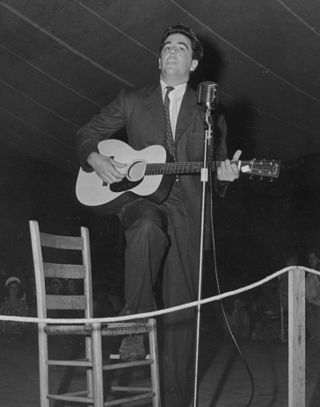
Alan Lomax was an American ethnomusicologist, best known for his numerous field recordings of folk music of the 20th century. He was a musician, folklorist, archivist, writer, scholar, political activist, oral historian, and film-maker. Lomax produced recordings, concerts, and radio shows in the US and in England, which played an important role in preserving folk music traditions in both countries, and helped start both the American and British folk revivals of the 1940s, 1950s, and early 1960s. He collected material first with his father, folklorist and collector John Lomax, and later alone and with others, Lomax recorded thousands of songs and interviews for the Archive of American Folk Song, of which he was the director, at the Library of Congress on aluminum and acetate discs.

John Avery Lomax was an American teacher, a pioneering musicologist, and a folklorist who did much for the preservation of American folk music. He was the father of Alan Lomax, John Lomax Jr. and Bess Lomax Hawes, also distinguished collectors of folk music.

Léon Kengo wa Dondo is a Congolese politician who served as the "first state commissioner" several times under Mobutu Sese Seko in Zaïre. He was one of the most powerful figures in the regime and was a strong advocate of economic globalization and free-market economics. He served as President of the Senate of the Democratic Republic of the Congo from 2007 to 2019.

Cantometrics is a method developed by Alan Lomax and a team of researchers for relating elements of the world's traditional vocal music to features of social organization as defined via George Murdock's Human Relations Area Files, resulting in a taxonomy of expressive human communications style. Lomax defined Cantometrics as the study of singing as normative expressive behavior and maintained that Cantometrics reveals folk performance style to be a "systems-maintaining framework" which models key patterns of co-action in everyday life. His work on Cantometrics gave rise to further comparative studies of aspects of human communication in relation to culture, including: Choreometrics, Parlametrics, Phonotactics, and Minutage.

The First Congo War, also nicknamed Africa's First World War, was a civil war and international military conflict which lasted from 24 October 1996 to 16 May 1997 and took place mostly in Zaire, with major spillovers into Sudan and Uganda. The conflict culminated in a foreign invasion that replaced Zairean president Mobutu Sese Seko with the rebel leader Laurent-Désiré Kabila. Kabila's unstable government subsequently came into conflict with his allies, setting the stage for the Second Congo War in 1998–2003.

The Story of B is a 1996 philosophical novel written by Daniel Quinn and published by Bantam Publishing. It chronicles a young priest's movement away from his religion and toward the environmentalist teachings of an international lecturer known as "B".

Beyond Civilization is a book by Daniel Quinn written as a non-fiction follow-up to his acclaimed Ishmael trilogy—Ishmael, The Story of B, and My Ishmael—as well as to his autobiography, Providence: The Story of a Fifty-Year Vision Quest. Beyond Civilization is written both to illuminate further the arguments and ideas made in his previous books and as a sort of guide to offer possible solutions to the problems he sees with the current state of civilization.

Representations of gorillas are common in popular culture in the Western world with the full range of electronic media having gorillas as mascots, gorillas behaving like humans, and humans behaving like gorillas.

Providence: The Story of a Fifty-Year Vision Quest is a book by Daniel Quinn, published in 1994, and written largely as an autobiography blended with additional philosophical reflections. It details how Quinn arrived at the ideas behind his 1992 novel Ishmael and articulates upon some of these ideas.

Catholicism has a major presence in the Democratic Republic of the Congo (DRC). It is part of the worldwide Catholic Church under the spiritual leadership of the Pope in Rome.
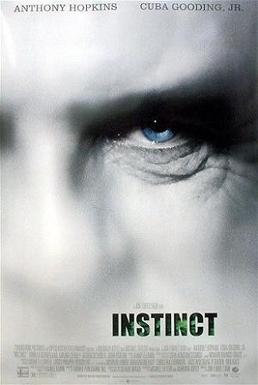
Instinct is a 1999 American psychological thriller film, directed by Jon Turteltaub, and starring Anthony Hopkins, Cuba Gooding Jr., George Dzundza, Donald Sutherland, and Maura Tierney. It was very loosely inspired by Ishmael, a novel by Daniel Quinn. In the United States, the film had the working title Ishmael. In 2000, the film was nominated for and won a Genesis Award in the category of feature film. This was the first film produced by Spyglass Entertainment.

Authenticité, sometimes Zairisation or Zairianisation in English, was an official state ideology of the regime of Mobutu Sese Seko that originated in the late 1960s and early 1970s in what was first the Democratic Republic of Congo, later renamed Zaire. The authenticity campaign was an effort to rid the country of the lingering vestiges of colonialism and the continuing influence of Western culture and to create a more centralized and singular national identity.

Shaba I was a conflict in Zaire's Shaba (Katanga) Province lasting from 8 March to 26 May 1977. The conflict began when the Front for the National Liberation of the Congo (FNLC), a group of about 2,000 Katangan Congolese soldiers who were veterans of the Congo Crisis, the Angolan War of Independence, and the Angolan Civil War, crossed the border into Shaba from Angola. The FNLC made quick progress through the region because of the sympathizing locals and the disorganization of the Zairian military. Travelling east from Zaire's border with Angola, the rebels reached Mutshatsha, a small town near the key mining town of Kolwezi.
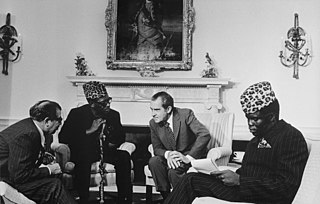
Mobutu Sese Seko's foreign policy emphasized his alliance with the United States and the Western world while supposedly maintaining a non-aligned position in international affairs. Mobutu ruled the Republic of the Congo and then Zaire as president for 32 years, from 1965 to 1997.


















